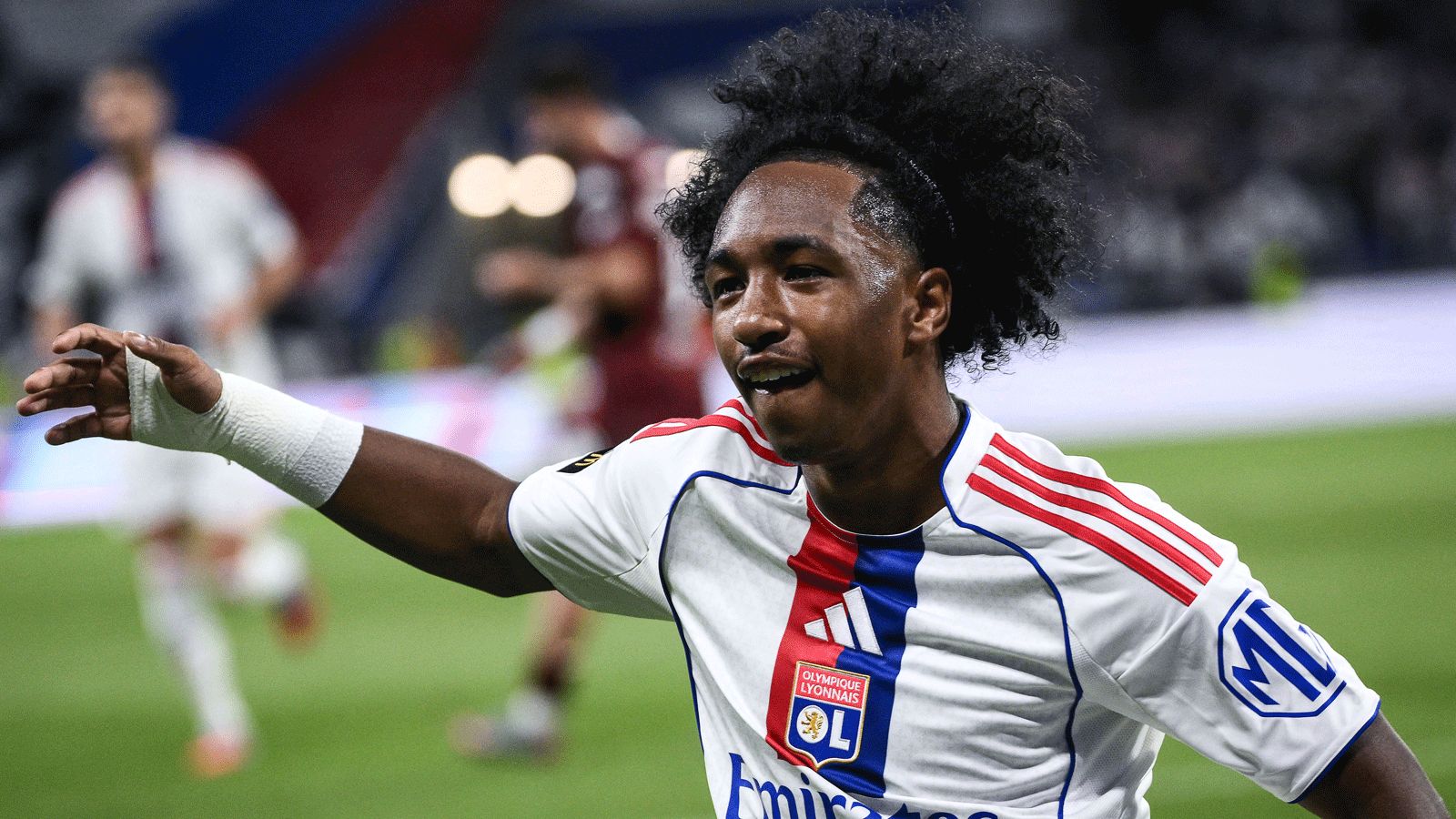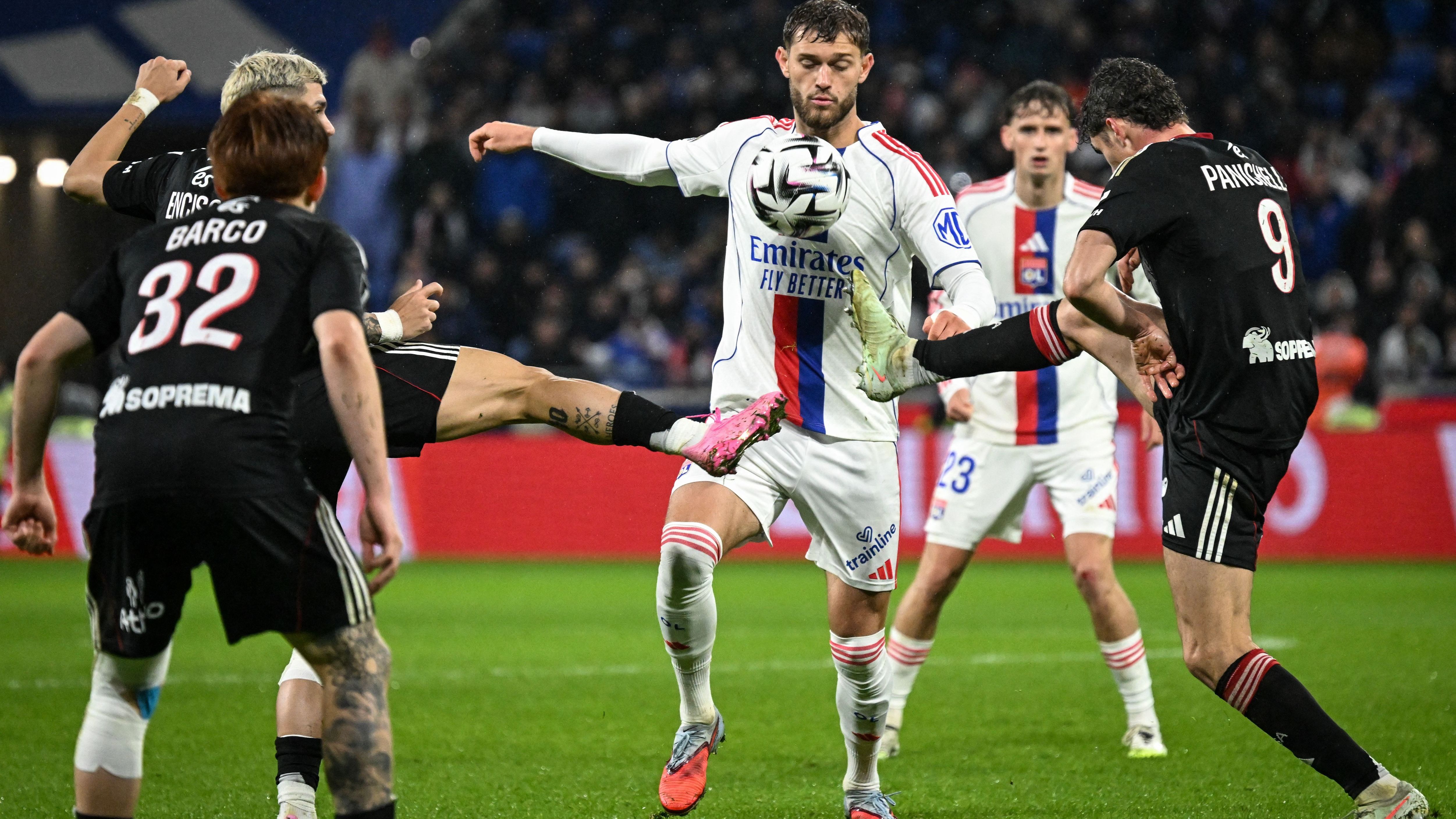 red card“>
red card“>

Rosenior’s Public Apology: A Turning Point in the Red Card Drama
In a surprising shift, Liam Rosenior and his Strasbourg team face the fallout from a contentious referee call, highlighting the intense emotions of competitive football. Strasbourg’s manager has openly admitted his error in challenging the ejection of a key player during their narrow loss to Lyon, showing how quick judgments can evolve with hindsight.
Rosenior Retracts Criticism Amid Red Card Controversy
Strasbourg’s coach, Liam Rosenior, has publicly expressed regret and withdrawn his prior objections to referee Eric Wattellier’s call, which resulted in defender Doukoure’s expulsion in the 67th minute of their 2-1 setback against Lyon. This ejection stemmed from a forceful tackle on Lyon’s forward Malick Fofana, leading to Fofana’s removal from the game via stretcher due to a severe ankle issue.
The Initial Backlash and Match Dynamics
At first, Rosenior voiced strong disagreement, claiming the dismissal was overly severe and influenced more by the resulting injury than the actual move. This pivotal moment came right after Strasbourg had mounted a comeback effort, only for the game’s balance to tip decisively when Lyon’s Afonso Moreira scored a late winner at the Groupama Stadium.
Reflecting on the Decision: From Protest to Acceptance
Upon examining the game footage afterward, Rosenior changed his view completely. During his Tuesday media session, he shared, “Everyone errs occasionally,” acknowledging that his immediate response was impulsive. “My assessment of the red card was incorrect. I offer my apologies and wish for Malick Fofana’s swift healing.”
Roots of the Original Frustration
Rosenior’s early irritation arose from the notion that Doukoure’s removal was swayed by the consequences rather than the intent. Right after the match, the coach remarked, “A couple of pivotal rulings left us vulnerable. In my opinion, it wasn’t worthy of a red; it seemed like an unfortunate mishap. We hate seeing players hurt, but the official appeared to base the call on the outcome, not the execution-it wasn’t a malicious play.”
Lyon’s Setback: Fofana’s Extended Absence
The event’s repercussions have hit Lyon hard, with Fofana-one of their standout offensive stars-now sidelined for a minimum of three months following diagnostic tests that uncovered a significant right ankle sprain. Additional evaluations suggest possible ligament tears that might necessitate surgical intervention, per latest updates.
Fofana’s Role and Team Impact
The young Belgian talent, aged 20, has already made his mark this season with two goals and an assist, serving as a cornerstone for Paulo Fonseca’s tactics. His unavailability adds to Lyon’s woes, especially with Ghanaian winger Ernest Nuamah already out until 2026 due to an ACL setback.
Match Outcome and Strasbourg’s Struggles
Doukoure’s red card played a decisive role in the final score, especially after he inadvertently scored an own goal that evened the tally following Joaquin Panichelli’s early strike for Strasbourg. Left with just 10 players, Rosenior’s squad gave up a goal in added time, extending their streak without a win to three games in all tournaments and resulting in a 2-1 defeat.
Vulnerabilities Exposed Under Pressure
This incident not only deprived Strasbourg of vital league points but also revealed their difficulties in maintaining defense when outnumbered. As Rosenior noted, “That was a tough blow for the group. We performed admirably, but operating short-handed makes everything tougher.” Consequently, Strasbourg fell from third to seventh in Ligue 1, though their strong performances at home provide a glimmer of optimism for recovery.
Upcoming Challenges for Both Sides
Strasbourg gears up for a key home encounter against Auxerre on Wednesday. The team from Alsace aims to rebound at the Stade de la Meinau, boasting a record of 10 victories in their previous 15 elite-level matches. Currently seventh in Ligue 1, they hold 16 points after nine outings, surpassing last year’s tally at this point.
Auxerre’s Struggles and Lyon’s Adjustments
Auxerre arrives amid a four-game drought without a win, languishing in the relegation spots with only seven points. Meanwhile, Lyon must adapt to Fofana’s absence as they prepare for their midweek showdown with Paris FC. Fonseca’s lineup is likely to redistribute duties on the wings in the near future to compensate for the gap.
Conclusion: Focus Shifts to Future Battles
With Rosenior’s apology resolving the debate, the spotlight returns to on-field action, where both Strasbourg and Lyon confront critical matches complicated by injuries and recent form dips.
The Ismael Doukouré Red Card Incident Explained
Background of the Event
In the world of professional football, controversial referee decisions often spark heated debates among players, coaches, and fans alike. One such case involved midfielder Ismael Doukouré, whose red card during a high-stakes match drew widespread attention. This incident occurred in a Premier League game where Doukouré’s team faced off against a rival side, leading to a pivotal moment that altered the game’s outcome.
Referees play a crucial role in maintaining fair play, but their calls are not immune to scrutiny. In this scenario, the red card was issued to Doukouré for what appeared to be a reckless challenge, potentially endangering an opponent. Eyewitness accounts and slow-motion replays later suggested the decision might have been influenced by the heat of the moment, raising questions about VAR (Video Assistant Referee) interventions and their effectiveness in Liam Rosenior red card incidents.
Key players in this story include Liam Rosenior, a respected football manager known for his passionate advocacy for his team, and Malick Fofana, a young forward who became inadvertently involved. Rosenior’s Liam Rosenior apology to Malick Fofana stemmed from his initial public comments criticizing the referee’s call, which he later admitted were based on incomplete information.
Liam Rosenior’s Initial Reaction
Liam Rosenior, as a manager, is no stranger to voicing his opinions on referee decisions in football matches. Following the Ismael Doukouré red card incident, Rosenior took to post-match interviews to express his frustration, labeling the referee’s decision as “harsh and unwarranted.” He argued that Doukouré’s tackle, while firm, did not warrant a straight red card and could have been a yellow card at most.
This criticism quickly gained traction online, with keywords like “Liam Rosenior red card controversy” trending on sports forums and social media. Fans and analysts debated the merits of his stance, with some praising his defense of his player and others accusing him of undermining the officials. However, as more footage emerged, it became clear that Rosenior’s remarks might have overlooked certain angles of the play.
In football, managers like Rosenior often face immense pressure to protect their squad, which can lead to emotional responses. Bullet points below highlight the key aspects of his initial backlash:
- Emotional context: Rosenior’s comments were made in the immediate aftermath of the game, a time when adrenaline runs high and decisions are often impulsive.
- Public impact: His statements fueled discussions around referee accountability and the role of VAR in red card incidents involving players like Ismael Doukouré.
- Potential consequences: Such criticisms can lead to fines or bans for managers, emphasizing the need for careful wording in post-game analyses.
Why the Criticism Was Mistaken
Upon further review, evidence showed that the referee’s decision in the Ismael Doukouré red card incident was more justified than initially thought. Replays indicated that Doukouré’s challenge involved a high boot that could have caused serious injury, aligning with modern football rules aimed at player safety.
Liam Rosenior’s mistaken criticism of the referee’s decision stemmed from a misinterpretation of the footage he had access to at the time. This highlights a common issue in sports: the rapid spread of information can lead to premature judgments. Rosenior later acknowledged that his focus on defending his player blinded him to the full context, particularly how it affected Malick Fofana, the opposing player who was on the receiving end of the tackle.
Fofana, a rising star in the league, had spoken out about the incident, expressing relief that he wasn’t seriously hurt and calling for better sportsmanship. This prompted Rosenior to reflect on his words, turning the event into a teaching moment about accountability in football management.
The Apology to Malick Fofana
Liam Rosenior’s apology to Malick Fofana was a pivotal turn in the story, demonstrating the importance of humility in professional sports. In a statement released through official channels, Rosenior admitted his error, saying, “I reacted based on what I saw initially, but after reviewing the full evidence, I realize my criticism was misplaced. I owe Malick Fofana an apology for not considering his perspective in this red card incident.”
This public retraction not only addressed the mistake but also set a positive example for how to handle Liam Rosenior red card controversies. Rosenior reached out directly to Fofana, reportedly via a phone call, to express his regret and wish him well, fostering a sense of unity in the football community.
Key elements of the apology process include:
- Timeliness: Acting quickly to correct the narrative helps mitigate damage and maintains trust.
- Personal touch: Directly contacting Fofana showed genuine remorse, rather than just a generic statement.
- Broader lessons: The incident underscored the need for managers to verify facts before commenting, especially in high-profile red card situations involving players like Ismael Doukouré.
Impact on the Football Community
The fallout from the Ismael Doukouré red card incident had ripple effects across the football world. Discussions around referee decisions and managerial responsibility became more prominent, with phrases like “Liam Rosenior apology” becoming search staples for fans seeking insights into sports ethics.
In terms of player safety, this event reinforced ongoing efforts to refine VAR systems and reduce the frequency of mistaken red cards. Coaches and players alike can learn from Rosenior’s experience, using it as a case study for handling disputes professionally.
Bullet points on the wider implications:
- Fan engagement: The story boosted online interactions, with SEO-friendly content like articles and videos drawing more traffic to sports sites.
- Rule changes: It sparked calls for clearer guidelines on tackles, potentially influencing future Liam Rosenior-style incidents.
- Personal growth: For Rosenior, this served as a career lesson, enhancing his reputation as a thoughtful leader in football management.
This narrative continues to resonate, offering valuable takeaways for anyone interested in the dynamics of professional sports and the human element behind the game.









